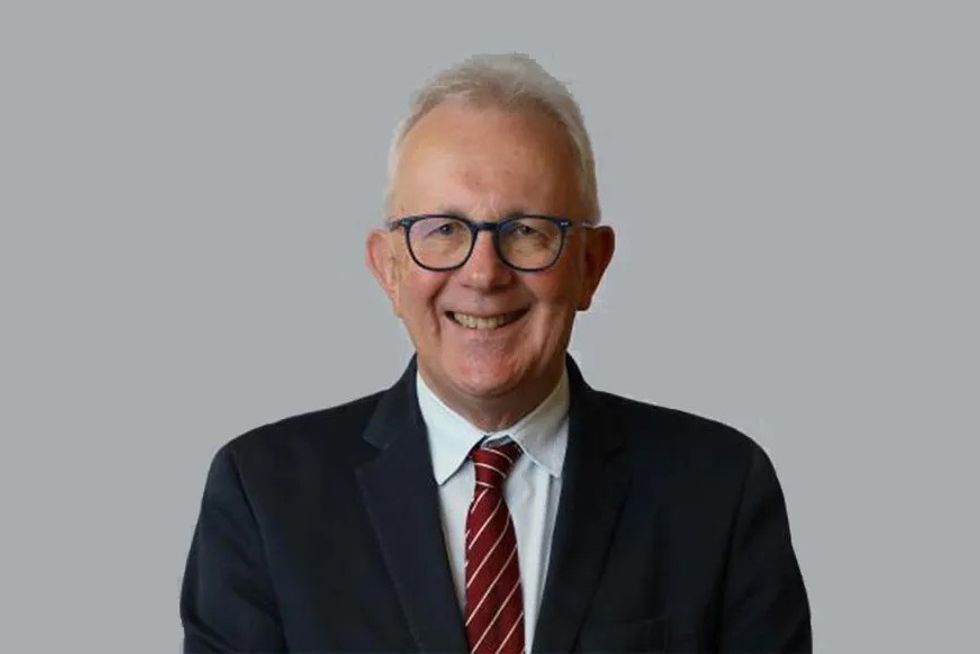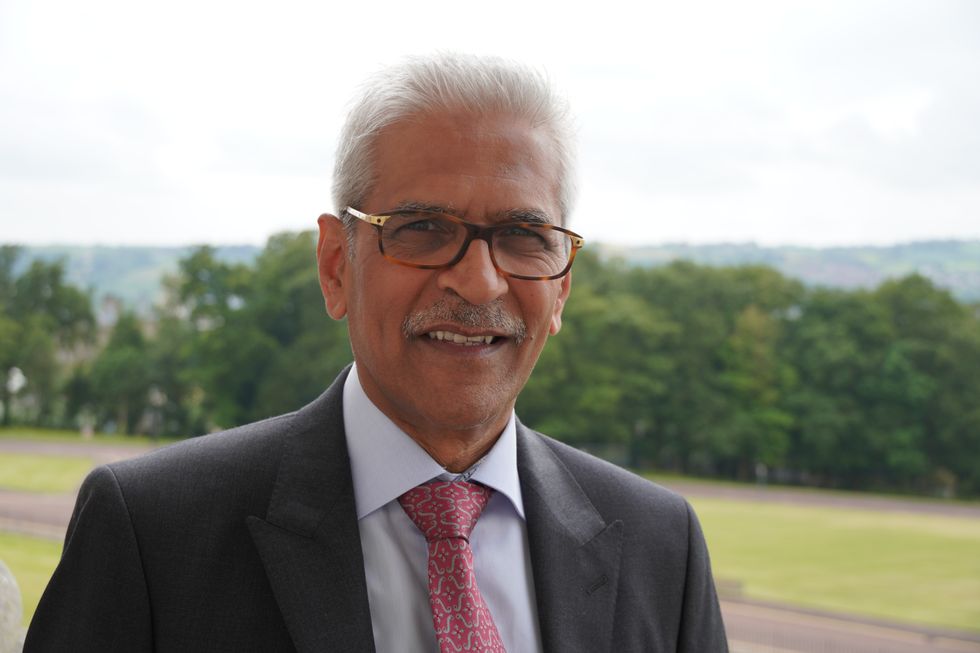By Sarwar Alam
Pharmacy leaders from across the sector need to work together in order to have a stronger voice in the future of the healthcare system, Sir Hugh Taylor, chair of the UK Pharmacy Professional Leadership Advisory Board (UKPPLAB), has told Pharmacy Business.
The establishment of this board in April 2024 was the principal recommendation of the UK Commission on Pharmacy Professional Leadership’s report, published in February 2023.
The report outlined that there is “an urgent need for the pharmacy professions to work collaboratively to deliver on their potential and, together, address a wide range of professional issues”.
“There's always been a measure of collaboration. And indeed, as we've begun our work, we've begun to unearth more examples of it, which is encouraging. But I think the conclusion that the UK Commission drew was that the fragmented nature of the professional leadership in pharmacy required something more concerted and organised in the form of the board,” said Sir Hugh.
Setup by the four UK chief pharmaceutical officers, the UKPPLAB is an independent public body, with the aim to enable greater collaboration across the pharmacy professional leadership bodies (PLBs) and specialist professional groups (SPGs), which are its constituent members.
The board consists of 21 members which includes eight pharmacy professional leadership bodies and specialist professional groups from across the UK. The Independent Expert Members provide support, challenge, intelligence and knowledge through their areas of expertise and represent in a personal capacity.
Among the professional organisational members are the Royal Pharmaceutical Society (RPS), the Association of Pharmacy Technicians UK, the British Pharmaceutical Students’ Association, the UK Clinical Pharmacy Association, the Primary Care Pharmacy Association, the British Oncology Pharmacy Association, the College of Mental Health Pharmacy and the Academy of Medical Royal Colleges.
All four UK devolved nations are represented on the board alongside pharmacy technicians and pharmacists in shaping the future of professional leadership in pharmacy.
There are ten independent expert members (IEMs) with outstanding leadership capabilities, who were appointed through an open and rigorous recruitment process, ensuring a “broad, balanced, and diverse” representation.

“Our aim is to carry forward the recommendations of the UK Commission on Pharmacy Professional Leadership in relation to professional standards, education and training, scope of practice and leadership and engagement, and then, more specifically, to consider together what might be a sustainable model going forward for pharmacy professional leadership,” said Sir Hugh.
“When we talk about one voice, it only works if that voice is prepared to represent different perspectives and diversity of interests in what it says, and it isn't giving any of the silos a particular advantage.
“In my experience, partnership and collaboration is hard. Just because you create a single organisation doesn't mean that you prevent disharmony. You have to meet regularly to create trust and collegiality between the different individuals, and then, over time, bind that into the accountability mechanisms of those organisations.
“Pharmacy, by no means is alone in having these tensions. If you took medicine or nursing as a very broad spectrum, you'd find similar sorts of issues. I think we mustn't beat ourselves up too much.”
Professor Mahendra Patel, Director of the Centre for Research Equity University of Oxford, is one of the Independent Expert Members of the board.
Patel was a member of the UK Commission whose work led to the creation of the UKPPLAB.
The commission revealed that even with the huge wealth of pharmacy professional talent at hand, there was insufficient collective professional leadership to satisfactorily shape the future of pharmacy and meet with the challenges of the changing healthcare landscape with meaningful conviction.
“As a pharmacist, it is crucial that my professional leadership body is largely representative, not just of its membership, which has been declining over the years, but of pharmacists from across the nations, which unfortunately at the moment it is not,” said Patel.
“To revive that membership, we need to become a strong and credible professional leadership body that is setting the scene in terms of excellent standard of practice so that we're able to deliver the best possible care for patients.
“With the UKPPLAB we are supporting inclusive and effective professional leadership through pharmacists, pharmacy technicians and their professional bodies and specialist professional groups.
“With an independent approach to encouraging, enabling and supporting collaboration through a unified voice, pharmacy colleagues from all disciplines and areas of practice can be more inspired to now think ‘this is the journey of pharmacy professional leadership that I want to be part of and help take forward!’.
“We are encouraging all pharmacists and pharmacy technicians to be members of a professional body, whether that happens to be of a specialist professional group or professional leadership body, so that they can be adequately equipped to practice at the top their game.”
Royal College of Pharmacy
The UK Commission on Pharmacy Professional Leadership’s report outlined three potential pathways for the future of pharmacy leadership that included, keeping the existing leadership structures as they are; a single Professional Leadership Body (PLB) – one leadership body could offer the infrastructure to host others on more equal terms; or develop a new PLB with Royal College status and formal representation from all relevant professional and specialist groups.
On Wednesday, the Royal Pharmaceutical Society (RPS) announced proposals to register as a charity and move to become a royal college - The Royal College of Pharmacy.
RPS members will have the opportunity to vote on the matter next month.
The RPS said the transition to a Royal College aims to establish a stronger and more collaborative leadership body that can better deliver its strategic ambitions in providing the highest standard of care to patients and communities.
Sir Hugh described the RPS’s proposals as “quite radical and interesting”.
He said: “There's a lot of detail and a lot of complexity - it's not one size fits all for everything. There are a number of permutations to be explored in terms of future collaboration, but certainly unless the RPS changes its current constitution, it will be difficult for it to adapt to any future governance model that we all agree on and that would also be true of other bodies as well.
“It's a necessary first step for the RPS and a lot of people within pharmacy think that it's an opportunity to move to a more all-embracing option. All that has to be worked out, all the key players will have to be involved in thinking about that.
“All I can say is that I'm confident the RPS want to work with the board as it develops its own proposals, and it's very sensitive to the fact that they aren't the only people in the pharmacy landscape.”
At its third board meeting in September, the UKPPLAB heard from Dr Jeanette Dickson, chair of Council of the Academy of Medical Royal Colleges.
“We should be cautious because organisational change is never easy, and as we heard from Dr Jeanette Dickson, there are a number of models of options out there for doing this kind of thing - there's not one single golden rule.
“The proposal from the RPS is to change its own governance, and they are very sensitive to the fact that it's not for them to decide what happens to other bodies.
“As a board, our aim is to co-create the future. Whatever emerges from this is jointly worked on and agreed so no single body can run off with its own idea on that model. We see it potentially as an opportunity, but very cautious about getting ahead of ourselves and at best, this is an enabler to move forward. It isn't the final word.
“We need to proceed cautiously and together based on trust and transparency, that's where the board's coming from. We should see the RPS proposal as an important first step, and we'll take it from there.”
Collaborative work
Sir Hugh revealed that Patel is currently leading on developing a “common vision and purpose for pharmacy” which involves an engagement exercise that has seen all board members given a set of questions to ask their individual audiences and will share the responses with the UKPPLAB.
This is an example of “all organisations speaking with one voice”, added Sir Hugh.
Patel said: “In the past, pharmacy has had very separate and different voices - how do we bring those voices together? We need a strong, unified voice that appeals to everybody and one that oozes credibility and trust for all to be proud of.
“We now have, for the first time, a proposed Vision and Common Purpose Statement for UK pharmacy professional leadership jointly co-created by the PLBs and SPGs to support its members and pharmacy colleagues from across the UK. This is a framework outlining five themes underpinning the principles of collaborative and inclusive leadership.”

Another example of collaborative work is the RPS, APTUK, specialist professional groups and the GPhC working on professional standards.
“There's some good work already been done on professional standards. What we're looking at now is gaps in that provision,” said Sir Hugh.
“We're looking at new and emerging priorities, especially when you take into account the radical changes that are already happening both in the way the wider NHS operates, but also in technology and research. The increased use of robots, AI and so on - we'll need to move on standards to keep in line with those.
“We've got a joint commitment to do that, and it's been very useful having professional leadership bodies including the RPS and APTUK and Pharmacy Forum Northern Ireland (PFNI) alongside both GPhC and the Pharmaceutical Society Northern Ireland (PSNI) as regulators, all working on that together. There's been a feeling in the past that they haven't always engaged closely, and I think we're making a start on that.”
On education and training, the board has put early emphasis to focus on the post registration, education and development for pharmacy technicians which is being led by the Association of Pharmacy Technicians for the UK, but they will work in partnership and engagement with other UKPPLAB members as they move forward.
With all pharmacists becoming independent prescribers at the point of registration from September 2026, the board will work to ensure that there is the necessary support available for newly qualified pharmacists.
“There are a number of issues which we've already identified arising from that, which includes the fact there's good content on education and development, but for that generation of pharmacists, there are issues relating to access, supervision, support which we will help to address over time working collaboratively alongside employers and commissioners and others,” said Sir Hugh.
“Some very good work has been done by the RPS and a number of the specialist bodies, including the UK Clinical Pharmacy Association (UKCPA) and the College of Mental Health Pharmacy (CMHP) on credentialing development in this area, we want to get behind that and look for areas where we could expand it and how that fits into a wider emphasis on career progression for newly qualified pharmacists.”
Patel added that the UKPPLAB will embrace, champion and facilitate the sharing of advancements in practice.
“Research and innovation are so important and ensure that pharmacy remains at the forefront of healthcare so that we are the best, not just in the UK and the four nations, but internationally as well,” he said.
“We need to lead and support innovation research in the pursuit of excellence in pharmacy and professional practice.
“Developing and supporting the next generation of pharmacy professionals and driving innovation will be essential in shaping the professionals of the future”
The UKPPLAB has established a patient and public reference group representing a wide diversity of patients and people across pharmacy and the wider health sector to garner thoughts on how the pharmacy sector can become a key part of healthcare in the UK.
“Pharmacy is a little bit of a hidden jewel in the NHS,” said Sir Hugh.
“It's got a vital role to play in the new NHS going forward, and the more united it is in the way it presents itself to the public and patients and within the health sector and to government, that will be a good thing.”












